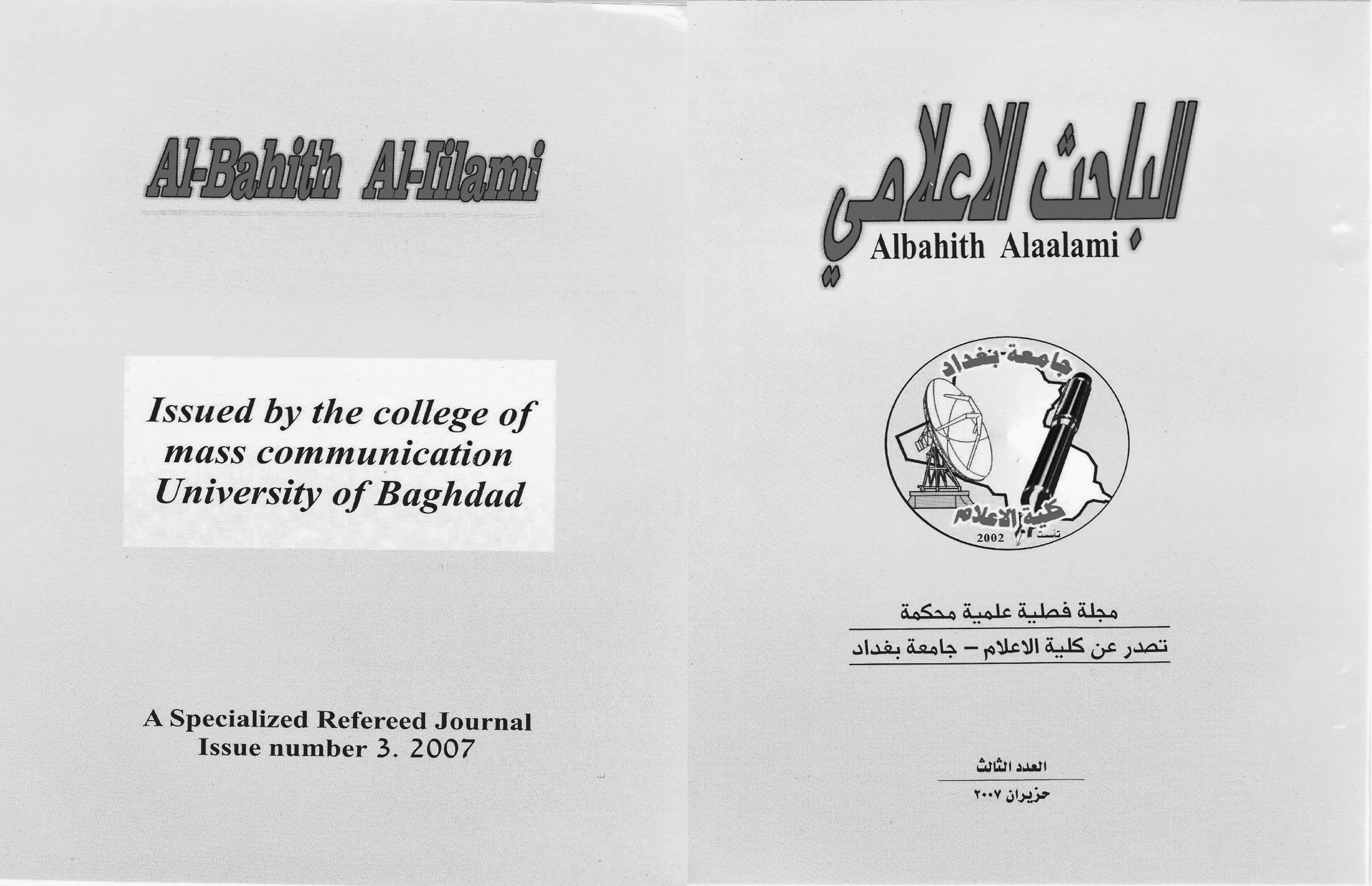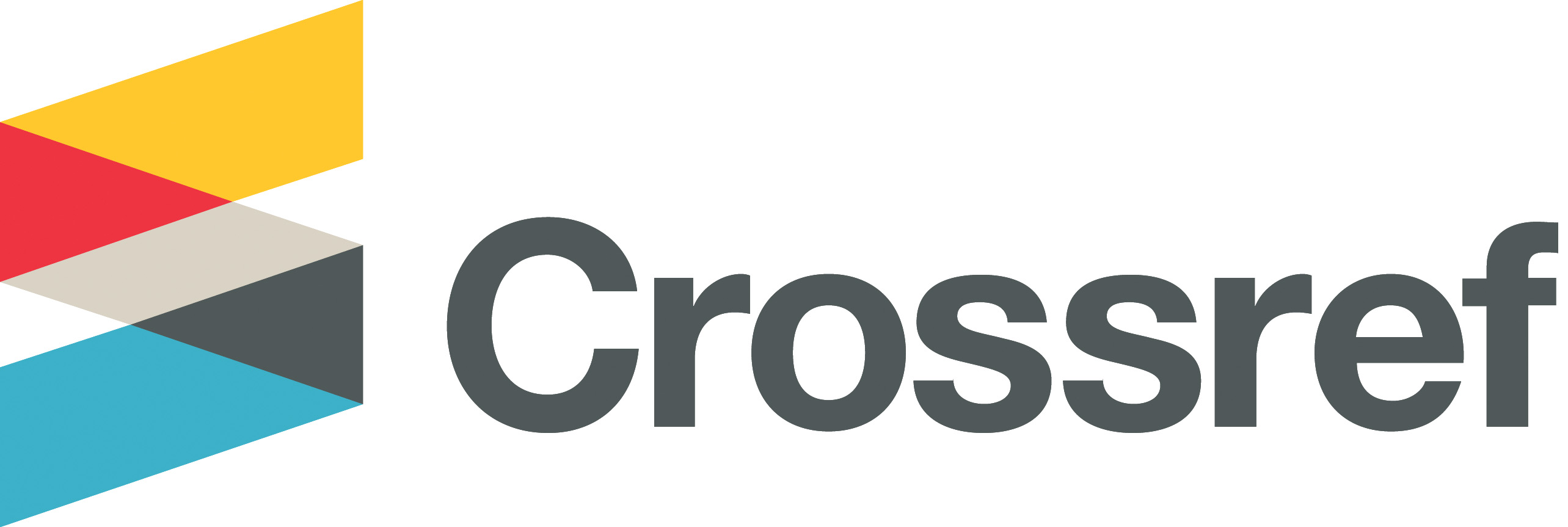COMMUNICATION SKILLS THROUGH THE LANGUAGE OF SPEECH
DOI:
https://doi.org/10.33282/abaa.v1i3.459Keywords:
language, communication, speechAbstract
Language is the realistic and sensitive basis for any communication between two or more parties. It is an important workshop that prepares meanings and coding them according to a linguistic structure governed by agreed rules that speak to and coexist with everyone.
Whereas the forms of communication are: personal, mediator and mass, none of them can move away from language in their dealings and communication patterns. Since each has its own characteristics and skills, it must be launched in its fields through verbal and non-verbal symbols and wears the elements of influential language as intended.
It makes the recipient face two things: whether he fails to understand those symbols hence its purpose fail, or he meditates simply and lively, so that it corresponds to what the communicator wants.
Language is a social activity, its speech is made up of the fabric of the environment in which she operates, and mass communication is at the center of that activity. It is a social unit that transmits ideas and knowledge between communities. Technological advances have provided it with that transfer and it also benefits in this field the language of discourse to use multiple skills and renewable and presentation methods in which the format is proportional to the content to achieve the goals and functions of mass communication. This research illustrates that use.
Downloads
References
-2 ﺭﻭﺒﺭﺕ ﻟﻭﺩﻴﺱ ، ﺨﺼﻭﺼﻴﺎﺕ ﺍﻟﺨﻁﺎﺏ ﻓﻲ ﺨﺩﻤﺎﺕ ﺍﻻﺘﺼﺎل . ﺘﺭﺠﻤﺔ ﻤﺎﺭﻱ ﻴﻌﻘﻭﺏ ، ﺒﻴﺭﻭﺕ ، ﺴﻠﺴﻠﺔ ﺩﺭﺍﺴـﺎﺕ ﺭﻗـﻡ (٣)، ﺍﻟﻤﺭﻜﺯ ﺍﻟﺜﻘﺎﻓﻲ ﺍﻟﻔﺭﻨﺴﻲ ﻓﻲ ﻟﺒﻨﺎﻥ ،١٩٩٠. ﺹ١٣
-3 ﻤﻌﺘﺯ ﺴﻴﺩ ﻋﺒﺩ ﺍﷲ ، ﺍﻻﺘﺠﺎﻫﺎﺕ ﺍﻟﺘﻌﺼﺒﻴﺔ . ﺍﻟﻜﻭﻴﺕ ، ﺴﻠﺴﻠﺔ ﻋﺎﻟﻡ ﺍﻟﻤﻌﺭﻓﺔ -١٣٧ ، ١٩٨٩ . ﺹ١٤٩-١٥٠.
-4 ﻤﺤﻤﺩ ﺨﻼﻑ ، ﺍﻟﺨﻁﺎﺏ ﺍﻻﻗـﻨﺎﻋﻲ : ﺍﻹﺸـﻬﺎﺭ ﻨﻤﻭﺫﺠﺎ . ﻤﺠﻠﺔ ﻜﻠﻴﺔ ﺍﻵﺩﺍﺏ ﻭﺍﻟﻌﻠﻭﻡ ﺍﻹﻨﺴـﺎﻨﻴﺔ ، ﻓﺎﺱ ﻋﺩﺩ ٩ ، ١٩٨٧ﺹ٧٩ .
-5 ﺒﺎﺭﺘﺱ . ﺭ ، ﺼﻭﺭﺓ ﺍﻟﺨﻁﺎﺏ ﻓﻲ ﻭﺴﺎﺌل ﺍﻻﺘﺼﺎل . ﺘﺭﺠﻤﺔ ﺍﻟﻨﻘﺎﺭﻱ ﺤﻡ . ﺒـﺎﺭﻴﺱ - ﺍﻟﻤﻐﺭﺏ ، ﺩﺍﺭ ﺍﻟﻤﻌﺭﻓﺔ ، ١٩٩٢ .ﺹ ٥٢
-6 ﺍﻟﻤﺼﺩﺭ ﺍﻟﺴﺎﺒﻕ ﻨﻔﺴﻪ ، ﺹ٣٤.
-7 ﻤﺤﻤﺩ ﺤﺴﻥ ﻋﺒﺩ ﺍﻟﻌﺯﻴﺯ ، ﻟﻐﺔ ﺍﻟﺼﺤﺎﻓﺔ ﺍﻟﻤﻌﺎﺼﺭﺓ . ﺒﻴﺭﻭﺕ ، ﺴﻠﺴﻠﺔ ﺩﺭﺍﺴﺎﺕ -٤ ، ﺍﻟﻤﺭﻜﺯ ﺍﻟﻌﺭﺒـﻲ ﻟﻠﺜﻘـﺎﻓﺔ ﻭﺍﻟﻌﻠﻭﻡ ، ١٩٨٩، ﺹ ١٤.
-8 ﻓﺅﺍﺩ ﺍﻟﺘﺭﺍﺒﻲ ، ﺍﻟﻌﻼﻗﺔ ﺒﻴﻥ ﺍﻟﻠﻐﺔ ﻭﺍﻟﻨﻘﺩ ﺍﻟﺤﻀﺎﺭﻱ ﻟﻠﻤﺠﺘﻤﻊ ﺍﻟﻌﺭﺒﻲ . ﺒﻴﺭﻭﺕ ، ﺍﻟﻤﺅﺴﺴﺔ ﺍﻟﻌﺭﺒﻴﺔ ﻟﻠﺩﺭﺍﺴـﺎﺕ ﻭﺍﻟﻨﺸـﺭ ، ١٩٩٤ ، ﺹ٢٢-٢٣.
-9 ﻤﺤﻤﺩ ﺍﺤﻤﺩ ﺍﻟﻘﻀﺎﺓ ، ﺍﻷﺴﻠﻭﺏ ﻭﺍﻷﺴﻠﻭﺒﻴﺔ ﻭﺍﻟﻨﻘﺩ ﺍﻟﺤﺩﻴﺙ . ﻤﺠﻠﺔ ﺩﺭﺍﺴﺎﺕ (ﺍﻟﻌﻠﻭﻡ ﺍﻹﻨﺴﺎﻨﻴﺔ ﻭﺍﻻﺠﺘﻤﺎﻋﻴﺔ) ،ﻋﻤﺎﻥ ، ﻤﺠﻠﺔ ٢٥ ﻋﺩﺩ ٢ ، ﺁﺏ ١٩٩٨ ، ﺹ٢٤٧.
-10 ﺨﺎﻟﺩ ﺴﻠﻴﻜﻲ ، ﻤﻥ ﺍﻟﻨﻘﺩ ﺍﻟﻤﻌﻴﺎﺭﻱ ﺍﻟﻰ ﺍﻟﺘﺤﻠﻴل ﺍﻟﻠﺴﺎﻨﻲ . ﻤﺠﻠﺔ ﻋﺎﻟﻡ ﺍﻟﻔﻜﺭ ، ﺍﻟﻘﺎﻫﺭﺓ ، ﻤﺠﻠﺔ ٢٣ ﻋﺩﺩﺍﻥ ٢٠٠٠ ، ١٩٩٤ ،ﺹ٣٩٨.
-11 ﻋﻠﻲ ﺨﻠﻴل ﻤﺼﻁﻔﻰ ﺃﺒﻭ ﺍﻟﻌﻴﻨﻴﻥ ، ﺃﺼﻭل ﺍﻟﻔﻜﺭ ﺍﻟﺘﺭﺒﻭﻱ ﺍﻟﺤﺩﻴﺙ . ﻁ٢ ، ﺍﻟﻘﺎﻫﺭﺓ ، ﺩﺍﺭ ﺍﻟﻔﻜﺭ ﺍﻟﻌﺭﺒﻲ ٢٠٠٠. ﺹ ٥٤
-12 ﻤﺤﻤﻭﺩ ﺍﻟﺴﻤﺭﺓ ، ﺍﻟﻨﻘﺩ ﺍﻷﺩﺒﻲ ﻭﺍﻹﺒﺩﺍﻉ ﺍﻻﺘﺼﺎﻟﻲ . ﺒﻴﺭﻭﺕ ، ﺍﻟﻤﺅﺴﺴﺔ ﺍﻟﻌﺭﺒﻴﺔ ﻟﻠﺩﺭﺍﺴﺎﺕ ﻭﺍﻟﻨﺸﺭ ، ١٩٩٧ . ﺹ١٩.
-13 ﺭﺸﺎﺩ ﺍﺤﻤﺩ ﻋﺒﺩ ﺍﻟﻁﻴﻑ ، ﺤﺘﻤﻴﺔ ﺍﻻﺘﺼﺎل ﺍﻻﺠﺘﻤﺎﻋﻲ . ﺍﻟﻘﺎﻫﺭﺓ ، ﺩﺍﺭ ﺍﻟﻨﻬﻀﺔ ﺍﻟﻌﺭﺒﻴﺔ، ١٩٩٧، ﺹ٣٠.
-14 ﻫﺎﺩﻱ ﺍﻟﻬﻴﺘﻲ ، ﺍﻟﻠﻐﺔ ﻓﻲ ﻋﻤﻠﻴﺔ ﺍﻻﺘﺼﺎل ﺍﻟﺠﻤﺎﻫﻴﺭﻱ . ﻤﺼﺩﺭ ﺴﺒﻕ ﺫﻜﺭﻩ ، ﺹ١٢-١٣.
-15 ﻤﺤﻤﺩ ﺠﻤﻴل ﺸﻠﺵ، ﺍﻟﻠﻐﺔ ﻭﻭﺴﺎﺌل ﺍﻹﻋﻼﻡ ﺍﻟﺠﻤﺎﻫﻴﺭﻴﺔ . ﺒﻐﺩﺍﺩ ، ﺴﻠﺴﻠﺔ ﺍﻟﻤﻭﺴﻭﻋﺔ ﺍﻟﺼﻐﻴﺭﺓ ، ﺩﺍﺭ ﺍﻟﺸـﺅﻭﻥ ﺍﻟﺜﻘـﺎﻓﻴﺔ ، ١٩٨٦ . ﺹ١٩.
-16 ﻫﻨﺎﺀ ﺤﺎﻓﻅ ﺒـﺩﻭﻱ ، ﻭﺴـﺎﺌل ﺍﻻﺘﺼﺎل ﻓﻲ ﺍﻟﺨﺩﻤﺔ ﺍﻻﺠﺘﻤﺎﻋﻴﺔ ﻭﺍﻟﻤﺠﺘﻤﻌﺎﺕ ﺍﻟﻨﺎﻤﻴﺔ . ﺍﻻﺴـﻜﻨﺩﺭﻴﺔ، ﺍﻟﻤﻜﺘﺏ ﺍﻟﺠﺎﻤﻌﻲ ﺍﻟﺤﺩﻴﺙ ، ٢٠٠١ . ﺹ٣١-٣٢.
-17 ﺼﻼﺡ ﻓﻀل ، ﻋﻠﻡ ﺍﻷﺴﻠﻭﺏ ﻭﺼﻠﺘﻪ ﺒﻌﻠﻡ ﺍﻟﻠﻐﺔ . ﻁ٢ ، ﺍﻟﺭﻴﺎﺽ ، ﺩﺍﺭ ﺍﻟﻌﻠﻭﻡ ﻟﻠﻨﺸﺭ ، ١٩٨٩ ، ﺹ١٧
1- Hadi Al-Haiti, the language in the mass communication process. P1, Baghdad, Dar Al-Samer, 1997. P. 8
2- Robert Ludis, Discourse Privacy in Communication Services. Translated by Mari Yaqoub, Beirut, Series of Studies No. (3), The French Cultural Center in Lebanon, 1990. P. 13
3- Moataz Sayed Abdullah, the tendencies are fanatic. Kuwait, World Knowledge Series 1337, 1989. Pp. 149-50.
4- Muhammad Khalaf, Persuasive Speech: Publicity as a Model. Journal of the College of Arts and Humanities, Fez Number 9, 1987 p. 79.
5- Barts. The photo of the speech in the media. Translations from Al-Nagari Ham. Paris - Morocco, Dar Al-Maarefa, 1992, p. 52
6 Ibid., P. 34.
7- Muhammad Hassan Abd Al-Aziz, the language of contemporary press. Beirut, Series of Studies 4-Arab Center for Culture and Science, 1989, p. 14.
8- Fadad Al-Turabi, the relationship between language and cultural criticism of Arab society. Beirut, Arab Institute for Studies and Publishing, 1994, pp. 23-22.
9 - Muhammad Ahmad Al-Qudah, Style, Style and Modern Criticism. Journal of Studies (Humanities and Social Sciences), Amman, Journal No. 25 Issue 2, August 1998, p. 247.
10- Khaled Seliki, from normative criticism to linguistic analysis. The World of Thinking, Cairo, 23, 2000, 1994, p. 398.
11- Ali Khalil Mustafa Abu Al-Ain, The Origins of Modern Educational Thought. I 2, Cairo, Dar Al Fikr Al Arabi 2000. P. 54
12- Mahmoud Al Samra, literary criticism and communicative creativity. Beirut, Arab Institution for Studies and Publishing, 1997. P. 19.
13- Rashad Ahmad Abdul-Taif, the imperative of social communication. Cairo, Dar Al-Nahda al-Arabiya, 1997, p. 30.
14- Hadi Al-Haiti, the language in the mass communication process. Source previously mentioned, pp. 13-12.
15 - Mohammed Jamil Shalash, Language and Mass Media. Baghdad, The Encyclopedia of Small Encyclopedia, Dar Al-Shoon Cultural Center, 1986. P. 19.
16- Here, a Bedouin Portfolio, means of communication in the social services and the developing societies. Alexandria, Modern University Office, 2001. Pp. 31-32.
17- Salah Fadl, teach the method and its link to linguistics. P2, Riyadh, Dar al-Ulum for Publishing, 1989, p. 17
Downloads
Issue
Section
License
Authors retain copyright and grant the journal right of first publication with the work simultaneously licensed under a Creative Commons Attribution License (CC BY 4.0) that allows sharing the work with recognition of authorship and initial publication in ABBA journal.


















